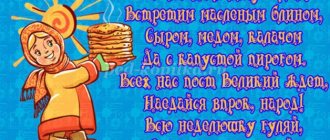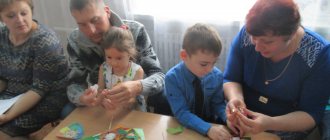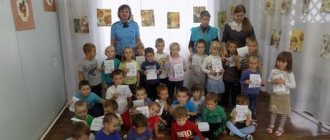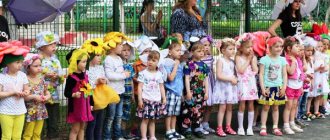Project "Maslenitsa"
The work was completed by 10a grade students: Vlada Tkachenko and Lyuba Kayun
Project manager: Kuznetsova N.V., technology teacher of the 1st qualification category
MKOU secondary school in Ola village
Maslenitsa is an ancient Slavic holiday that came to us from pagan culture and survived after the adoption of Christianity. The Church included Maslenitsa among its holidays, calling it Cheese or Meat Week, since Maslenitsa falls on the week preceding Lent.
Maslenitsa is a character in Slavic mythology that embodies fertility and at the same time winter and death. The name of the Russian calendar holiday of seeing off winter and welcoming spring - Maslenitsa - was transferred to an anthropomorphic character who was greeted with majestic songs at the beginning of the holiday on the hills. Maslenitsa was also called a straw effigy dressed in women's rags, sometimes with a pancake (from the butter pancake - the very name Maslenitsa) or a frying pan in its hands; they had fun with him, rode in troikas during Maslenitsa week, and then buried him or saw him off at the end of the holiday, tearing up the effigy on the outskirts of the village or (more often) burning it on a bonfire made on a hill. The funeral of Maslenitsa was accompanied by carnival processions, mummers, ritual laughter, calls for spring and defamation of Maslenitsa in special songs, where she is called a deceiver (in connection with Lent, which comes immediately after Maslenitsa feasts), an overeater, a pancake eater.
The fun lasted for several days. The Slavs believed that evil spirits cannot stand noise. Therefore, with shouts and screams, they burned old garbage and various rubbish, because they believed that “evil spirits” had taken root in the stale rubbish over the long winter. They burned or drowned a straw effigy, dressed in someone else's clothes, dressed up in animal skins, smeared their faces with soot - all with the same goal of deceiving and warding off evil spirits. Even fist fights (sometimes with fatal consequences) were not fun at first. The blood was supposed to bring rain to the fields, and rain was the guarantee of a bountiful harvest.
Many nations have typical examples of such a celebration - the Novruz holiday. A similar celebration of Maslenitsa, similar in type of celebration to the Russian tradition, is found in many countries of the world: Bun Barekendan in Armenia, Vlastlavya in the Baltics. Fun on Fat Tuesday (or Mardi Gras) in Western Europe and America, and Fat Thursday in Poland. Western Christians celebrate the carnival week with the most beautiful shows and processions, in which there is no place for boredom and despondency, but where there is only celebration, rejoicing and bright colorful transformation. Lithuanian, Estonian, Norwegian, Czech, Greek Maslenitsa, each of which has its own folk traditions and its own unique historical name. Maslenitsa also exists in Australia with a real scarecrow of Maslenitsa and all the attributes of the holiday, only there are no snowy mountains and harsh winters due to other climatic features.
The name of the holiday “Maslenitsa” is due to the fact that in this last week before the start of Lent, foods such as butter, fish and dairy products are allowed. The beginning of festive festivities is always compared with the date of Lent. Maslenitsa week was spent in a special festive mood, and each day had its own special meaning.
Pancakes are the main treat and symbol of Maslenitsa. They are baked every day from Monday, but especially many from Thursday to Sunday. The tradition of baking pancakes has been in Rus' since the times of worship of pagan gods. After all, it was the sun god Yarilo who was called upon to drive away winter, and the round, ruddy pancake is very similar to the summer sun.
Maslenitsa is the most cheerful and satisfying folk holiday, lasting a whole week. The people always loved him and affectionately called him “killer whale”, “sugar mouth”, “kisser”, “honest Maslenitsa”, “cheerful”, “quail”, “perebukha”, “overeating”, “yasochka”.
Maslenitsa has retained the character of a folk festival for many centuries. All Maslenitsa traditions are aimed at driving away winter and waking up nature from sleep. Maslenitsa was celebrated with majestic songs on the snow slides. The symbol of Maslenitsa was a straw effigy, dressed in women's clothes, with whom they had fun, and then buried or burned at the stake along with a pancake, which the effigy held in its hand.
The first three days: from Monday to Wednesday were called Narrow Maslenitsa
, and, from Thursday to Sunday, they were called
Shiroka Maslenitsa
. If in the first three days many peasants still continued their household work, then, starting on Thursday, all types of work stopped, and active celebrations took place.
All the days of Shrovetide Week have their own special names...
Monday - meeting.
On Monday, the Maslenitsa meeting began with the baking of pancakes, the matchmakers and the in-laws met and discussed the time and place of the festivities, the number of invited guests. On this day, the construction of snowy mountains, booths and swings was completed, and a scarecrow of Maslenitsa was made from old things, straw and other materials, strengthened for durability on a stake. This personification of Maslenitsa was busy all week on the sleigh and added even more joy and fun to the old and young.
Tuesday - flirting.
On Tuesday, unrestrained, cheerful and daring games, rides, and fun began. In the morning, the girls and young men went to visit - ride in the mountains, eat pancakes. Guests were greeted at the gate. After the treat, they were released to go for a ride to the mountains, where the brothers looked out for brides, and the sisters glanced furtively at their betrothed. In general, all Maslenitsa fun and amusement tended, in fact, to matchmaking, so that after Lent they could have a wedding on Krasnaya Gorka.
Wednesday is delicious.
On Lakomka, mothers-in-law hosted their sons-in-law for pancakes, and for the sons-in-law's amusement they called all their relatives. It was believed that on Maslenitsa, and especially on Lakomka, you need to eat as much as your heart desires, or, as people said, “how many times a dog wags its tail.”
Thursday is a wild Thursday.
of Maslenitsa began with riotous Thursday
which became an important event. All work was stopped, and the walkers indulged in various fun activities, fist fights, fun competitions, and rides on decorated sleighs in teams of two or more horses.
All entertainment was fun, noisy, with treats and often excessive alcohol consumption
and food. The most important action, which both adults and children expected, was the storming of the snowy city and the attack of the enemy, which resulted in the capture of the snow fortress and a cheerful victory with rejoicing. Broad Thursday, as well as the entire Maslenitsa, had the goal of providing an opportunity to release all negative energy and resolve accumulated conflicts between people through fun entertainment and communication.
Friday is mother-in-law's evening.
On mother-in-law's evenings, sons-in-law treated their wives' mothers to pancakes and sweets. There were different invitations: honorary - when the mother-in-law and all her relatives were invited to a festive dinner, or simple - to dinner. The night before, the son-in-law had to personally invite his mother-in-law, and in the morning send special ceremonial “calls” for her. The more “invited” there were, the more honors the mother-in-law received. That’s why they said that “a mother-in-law’s son-in-law is her favorite son.”
Saturday -
sister-in-law's get-togethers.
Sister-in-law's gatherings were held on Saturday. As a rule, young daughters-in-law received their sisters-in-law, all their husband’s relatives, and also quite often their husband’s distant relatives into their home. The unmarried sister-in-law (husband's sister) brought all her unmarried friends. Married sisters-in-law brought all their married relatives with them. Such holidays could gather half the village in one hut. The daughter-in-law, as a sign of special treatment, gave her sister-in-law a gift, thereby demonstrating her affection, friendship and affection.
Sunday - farewells, farewells, kissing day, forgiven day.
Forgiveness Sunday was the last day and culminating moment of Maslenitsa
, and also had a deep religious meaning. The ritual of the so-called spell was held before the beginning of Lent. All Sunday, loved ones, relatives and simply acquaintances and even strangers asked each other for forgiveness for all the insults caused, troubles, and conflicts that occurred over the past year.
There is a tradition of forgiving Before Lent begins - The soul is cleared of resentment and anger, Dark thoughts are cleansed, Others are asked for forgiveness, Receiving relief, Like a blessing from heaven. Happy Forgiveness Sunday everyone!
Forgiveness Sunday was the last day and culminating moment of Maslenitsa
, and also had a deep religious meaning. The ritual of the so-called spell was held before the beginning of Lent. All Sunday, loved ones, relatives and simply acquaintances and even strangers asked each other for forgiveness for all the insults caused, troubles, and conflicts that occurred over the past year.
A special ritual on this day was the commemoration of deceased relatives. The first pancakes were either placed on the window as a sign of memory of the deceased, or they were given to the poor.
A kind of cleansing and liberation of the old and obsolete took place, so on this day it was customary to visit the bathhouse, burn the leftover food, and thoroughly wash the dishes. The end of the holiday was dedicated to the solemn ceremony of burning the effigy of Maslenitsa and scattering the ashes across the fields. The evening service was conducted by the rector, who asked for forgiveness from other church ministers and parishioners of the temple, and the believers responded with low bows, “God will forgive,” and in turn also repeated requests for forgiveness.
From this moment on, Lenten services began to be held, which showed the importance of cleansing the soul and body, as well as the importance of fasting for health, mental balance and understanding of the meaning of life.
Farewell to Maslenitsa.
Farewell to Maslenitsa ended on the first day of Lent - Clean Monday, which was considered a day of cleansing from sin and fasting food. On Clean Monday they always washed in the bathhouse, and women washed the dishes and “steamed” the dairy utensils, cleaning them from fat and remnants of the milk.
There are many jokes, jokes, songs, proverbs and sayings associated with the days of Maslenitsa: “It’s not Maslenitsa without a pancake,” “Ride in the mountains, roll in pancakes,” “It’s not life, but Maslenitsa,” “Maslenitsa is a mess, you’ll save your money,” “At least pawn everything from yourself and celebrate Maslenitsa”, “It’s not all Maslenitsa, but there will be Great Lent”, “Maslenitsa is afraid of bitter radishes and steamed turnips” (i.e. fasting).
A few facts about Maslenitsa
- Maslenitsa comes from the ancient pagan holiday of farewell to winter, which survived in Russia even after the adoption of Christianity.
- Maslenitsa is one of the most wonderful folk holidays, which lasts for 7 days. Each day of Maslenitsa has its own name and its own traditions.
- Maslenitsa is notable for its wide-ranging folk festivities: dancing, singing, round dances, mountain skating, funny and fist fights, bonfires and much more. One of the favorite games in Rus' was the capture of a snowy town. This fun is a symbol of the battle of Spring and Winter, the victory of the Sun over the Winter Kingdom
- The symbol of the holiday is a straw or rag doll - an effigy of winter, which is burned at the end of the holiday. Many nations make such a doll. Czechs and Slovaks call it Marzena, Bulgarians call it Kuker, and here we call it Maslenitsa.
- The main dish on holidays is pancakes, symbolizing the sun, they are baked every day, starting on Monday. The word “pancake” comes from the word “mlyn” and from the verb “melit”, that is, these are dishes made from flour. Pancakes of different types, different consistencies and made from different flours are known among almost all peoples, from the British to the Uzbeks. Among the Slavic peoples, this dish has a specific - yeast variety. And in Western Europe and Central Asia, pancakes are often prepared from unleavened dough of various compositions.
Pancake is a symbol of the spring sun.
“The pancake is round, like a real generous sun. The pancake is red and hot, like a hot, all-warming sun, the pancake is poured with melted butter - this is a memory of the sacrifices made to powerful stone idols. The pancake is a symbol of the sun, red days, good harvests, good marriages and healthy children,” wrote Russian writer Alexander Kuprin.
Real Russian red pancakes were made from wheat flour and yeast. Our ancestors learned the secrets of preparing yeast dough from the inhabitants of the Greek Black Sea colonies. However, the secrets of yeast dough aroused superstitious feelings among our ancestors, and products made from this dough (in particular, pancakes) were sacrificed to the pagan gods.
Each housewife had her own recipe for making pancakes and kept it secret from her neighbors. The recipe was passed down from generation to generation as a very valuable heirloom. Using this dish as an example, you can see a characteristic feature of Russian cuisine - the use of flour not only from rye and wheat, but also from various grains: buckwheat, millet, oats. Pancakes can be simple and rich, unleavened and leavened. You can make them with seasoning (adding various products when baking). Pancakes with seasonings should be baked like this: grease a heated frying pan with oil, sprinkle with green or fried onions or chopped eggs, or put in pieces of salted, boiled or fried fish, sausage, ham, etc., pour Continue baking the dough like regular pancakes. You can serve pancakes with heated butter, ghee or vegetable oil, sour cream, jam, honey, caviar, lightly salted fish (salmon, salmon, chum salmon, pink salmon), herring, sprat, cold smoked fish, and boiled eggs. Previously, pancakes were baked only in a Russian oven and therefore they still say about pancakes “bake” and not “fry”, but in fact they are currently only fried.
In order for the pancakes to turn out exactly the way you like, you should follow some rules.
- Pancake flour must be sifted immediately before preparing the dough. During the sifting process, the flour is loosened by air, and the pancake dough is soft and fluffy.
- Eggs for pancakes must be fresh. And before adding them to the dough, the eggs need to be beaten well, yolks and whites separately along with sugar. It is better to beat the whites with a mixer. It is also important to follow the correct sequence: first add the yolks mashed with sugar, lightly beat the dough, and then the whites.
- Before adding salt and sugar to the dough, it is necessary to dissolve it in a small amount of liquid in a separate bowl, and then strain this liquid through a sieve so as not to spoil the structure of the dough with undissolved grains of salt or sugar.
- In order for the pancakes to turn out well, you must follow a certain procedure. Under no circumstances should you pour freshly sifted flour into the liquid mixture - you need to do exactly the opposite: sift the flour into one pan, dilute the liquid ingredients in another (don’t forget that salt and sugar are first dissolved separately and then filtered) and then pour in the liquid into the flour in a thin stream with continuous stirring.
- To make the pancakes tasty, add butter or vegetable oil to the dough at the very end of its preparation, and this should be done in moderation. If you add oil earlier, the dough will be too dense, elastic and tasteless.
- Add soda to yeast-free pancakes. Thin pancakes then have a beautiful “lace” pattern. Even if pancakes are baked with milk, the soda must be quenched with a few drops of citric acid or vinegar until completely dissolved.
- When adding sugar to the dough for sweet pancakes, do not overdo it, otherwise the pancakes will burn.
- To make yeast pancakes fluffy, the yeast dough needs to be kneaded with water, but when mixed with milk it allows you to bake the most delicious pancakes.
- Yeast pancakes have their own secrets: the dough should rise 2-3 times. If it does not “ferment”, then the pancakes will be too dense and tasteless. And if it ferments, it will be inexpressive, pale and with an unpleasant sourness.
- In addition, with yeast dough for pancakes, you need to catch the moment when it has already risen, but has not yet “fallen” - that’s when you need to bake pancakes. It is advisable to lightly beat it.
- If pancakes are made with kefir or sour milk, then the soda is quenched separately and added to the dough immediately before the flour.
- In order for the pancakes to be tasty and golden brown and not lumpy, it is very important to have a good, preferably a special frying pan for pancakes. It can be an iron frying pan, preferably with a thin bottom, or a cast iron frying pan with a thick bottom, or an ordinary modern one with a non-stick coating. Before baking pancakes, you need to heat it well over high heat, preferably with coarse table salt, shaking the pan regularly. After calcining the pan with salt in this way, do not wash it, but simply wipe it with a clean dry cloth. In general, it is not advisable to wash a pancake pan.
- Pour a small amount of batter into a hot frying pan with a ladle so that the pancakes are not too thick. In this case, you need to quickly turn the pan so that the dough is distributed evenly over its surface.
- Pancakes are fried over medium heat for half a minute on each side, and then stacked on a flat dish of larger diameter. Each pancake is greased with butter, and if the pancakes are sweet, you can also lightly sprinkle with sugar.
- The resulting pancake slide is covered with a clean towel - then the pancakes will “breathe”, but will not cool down.
- The most delicious pancakes are, as they say, piping hot, that is, they need to be eaten right away. If the pancakes are stuffed, you can fry them later.
Pancake recipe for Maslenitsa.
The ingredients for making pancake dough are as follows:
- two glasses of flour; three glasses of milk; a pair of eggs; salt and sugar (to your taste); vegetable oil.
- two glasses of flour; three glasses of milk; a pair of eggs; salt and sugar (to your taste); vegetable oil.
- two glasses of flour; three glasses of milk; a pair of eggs; salt and sugar (to your taste); vegetable oil.
- two glasses of flour;
- three glasses of milk;
- a pair of eggs;
- salt and sugar (to your taste);
- vegetable oil.
Pancake making process:
And so, we start by whisking eggs, salt and sugar. Pour in milk. Mix everything well. Gradually add flour. Mix thoroughly again so that there are no lumps. And at the end add vegetable or olive oil. And mix thoroughly again.
Fry the pancakes from the prepared dough in a well-heated frying pan on both sides. Place the prepared pancakes in a stack, greasing each pancake with butter so that the pancakes remain soft for a long time. Bon appetit and have a nice Maslenitsa!
Without which you can’t celebrate Maslenitsa!
(comic test)
For some, Maslenitsa is a holiday of the soul and heart, while others consider it a delight for the belly.
What does it mean to you?
1. What is the main “girlish fun” of Maslenitsa?
— Swings with carousels. (2 points)
— Pancakes with caviar (not eggplant). (1)
- Communication with your loved one. (0)
2.
How would you answer the old riddle: “What is higher than the sky?
What is wider than Maslenitsa?” - My love. (0)
- Nothing! (2)
— Current prices are higher than the sky. And wider than Maslenitsa is my empty pocket. (1)
3.
Who is Maslenitsa Lada?
— Ancient goddess of love. On Maslenitsa she wakes up the god of spring Lel. (2)
— A girl who spares no butter for her loved one’s pancakes. (0)
— A faulty Zhiguli car, from which oil is gushing. (1)
4.
Oily eyes are a sure sign...
- a Playboy magazine subscriber. (0)
- a passionate pancake lover. (1)
- any person who has celebrated Maslenitsa with all his heart - (2)
5.
Would you like to kiss through a pancake on Maslenitsa?
- It's probably exotic. But it’s inconvenient - because the pancake is oily and hot. (1)
- With pleasure! It's so erotic... (0)
- No, Maslenitsa pancakes are sacred. You can only admire them. Or there is. (2)
8-10 points.
You certainly know and respect the ancient traditions of Maslenitsa. But do not forget that it, like any holiday, is not only rituals, but also an outburst of passions as hot as pancakes.
4-7 points.
Maslenitsa for you is, first of all, a table with pancakes and other foods. And you leave all sorts of feelings and customs for an appetizer.
0-3 points.
With your ardor and enthusiasm, you could organize Maslenitsa with pancakes and festivities on any day. Even during Lent. But only for the sake of a loved one.
Happy Maslenitsa and happy pancakes!!!
Popular message topics
- Boh Osiris in Ancient Egypt
One of the most popular gods of the mysterious country of the pyramids was Osiris. In Egyptian, his name sounds different - Uzis, but Osiris (translated as the only and powerful one) is an interpretation from Latin that has become more widespread. - Aesop
Aesop is considered the first fabulist. He is the pioneer of the fable genre, although his original works have not survived to this day. There is no exact reliable information about whether Aesop lived. Some suggest that the poet actually existed, - World of professions
Society has a large number of exciting and necessary professions. Having graduated from a secondary educational institution, a person is obliged to take the most serious step in his life - choose a profession. This choice determines the main







